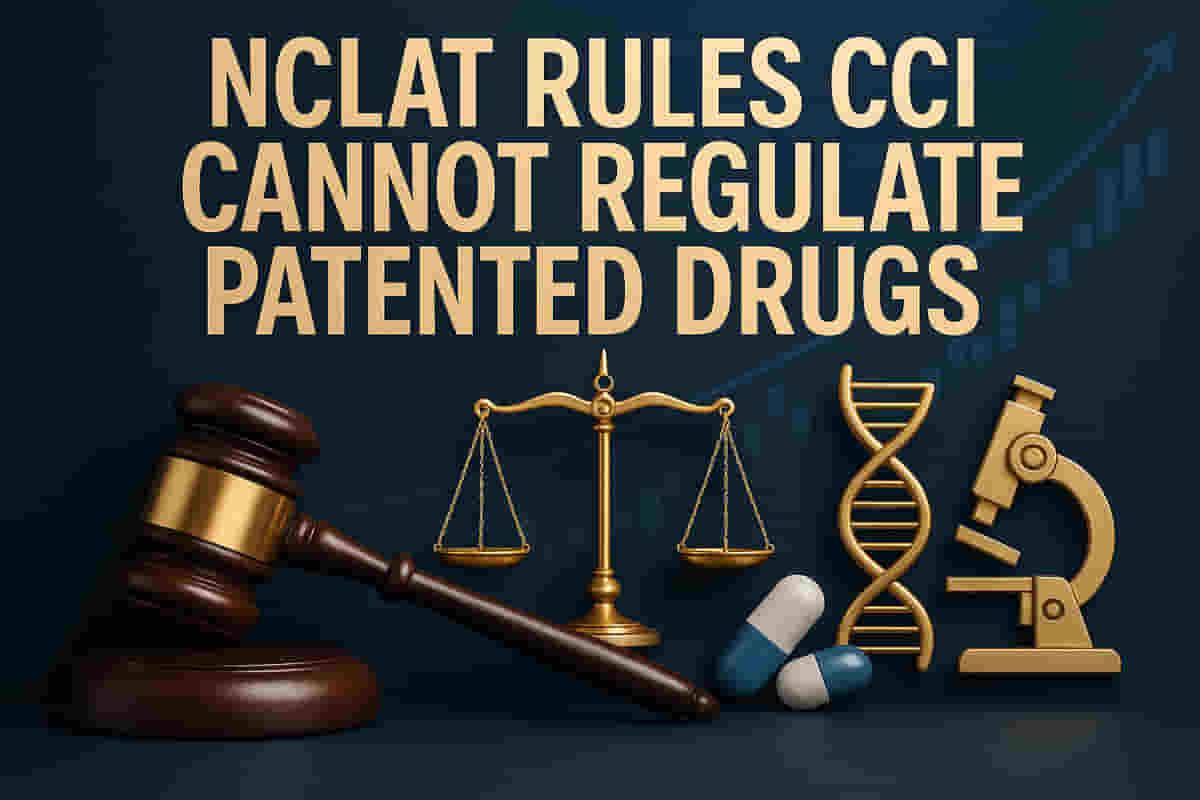NCLAT Rules CCI Lacks Jurisdiction Over Patented Pharmaceutical Product Competition Issues
Healthcare/Biotech
|
31st October 2025, 10:29 AM

▶
Stocks Mentioned :
Short Description :
Detailed Coverage :
The National Company Law Appellate Tribunal (NCLAT) delivered a significant ruling stating that the Competition Commission of India (CCI) does not have the authority to investigate anti-competitive practices related to patented pharmaceutical products. The NCLAT held that issues concerning patented drugs are exclusively within the domain of the Patents Act, 1970.
The case involved an appeal filed by Swapan Dey, CEO of a hospital, against a 2022 CCI order. Dey had complained that Vifor International AG, the patent holder for Ferric Carboxymaltose (FCM), an injectable used for iron-deficiency anaemia, had abused its dominant position by limiting supply and inflating prices, making the drug inaccessible. He alleged violations of Sections 3 and 4 of the Competition Act, 2002.
The CCI had previously dismissed the complaint, finding no merit and observing that Vifor's licensing agreements with Indian companies Emcure and Lupin were not anti-competitive. The NCLAT upheld the CCI's decision and went further to clarify that the Competition Act does not supersede the Patents Act when alleged abuses arise from the exercise of patent rights.
The tribunal cited Supreme Court guidance and noted that Section 3(5) of the Competition Act protects a patent holder's right to impose reasonable conditions for intellectual property protection. As the patent for FCM expired in October 2023, the molecule is now in the public domain, making further intervention under competition law unnecessary.
Impact: This ruling provides clarity for pharmaceutical companies operating in India, reinforcing that patent rights have precedence over competition law when assessing conduct related to patented medicines. This could potentially shield patent holders from competition law scrutiny for actions deemed necessary to protect their IP, provided they are reasonable and within the scope of the patent. However, it also implies that any challenges to patent-related practices must be pursued under the Patents Act.
Rating: 8/10
Difficult Terms: National Company Law Appellate Tribunal (NCLAT): An appellate body in India that hears appeals against orders of the National Company Law Tribunal (NCLT). Competition Commission of India (CCI): India's national body responsible for enforcing the Competition Act, 2002, to prevent practices that harm competition in India. Patents Act, 1970: An Indian law that governs patents, granting exclusive rights to inventors for their inventions. Competition Act, 2002: An Indian law that promotes and sustains competition in the market, preventing anti-competitive agreements and abuse of dominant position. Ferric Carboxymaltose (FCM): An intravenous iron preparation used to treat iron-deficiency anaemia. Patent Holder: An individual or entity that owns a patent and has exclusive rights to exploit the invention. Abuse of Dominant Position: When a company with significant market power uses that power to unfairly restrict competition. Intellectual Property: Creations of the mind, such as inventions, literary and artistic works, designs, and symbols, names, and images used in commerce. Patents are a form of intellectual property.